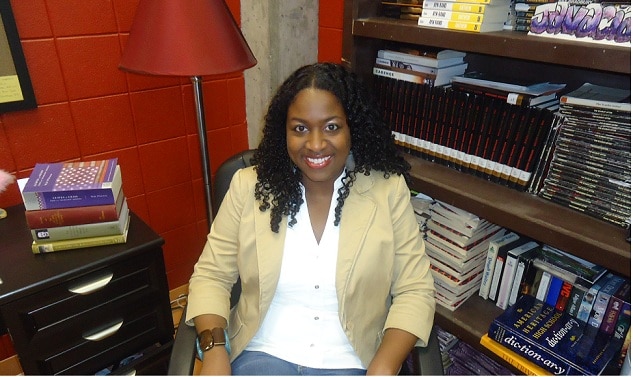When someone says they identify as a feminist, some images and assumptions come to mind. But what if someone were to self identify as a womanist? What would you think then?
The meaning behind these two words may sound similar, but they spark great debate. Our guest blogger Javacia Harris Bowser explores this in her monthly post for WBHM.
I am a feminist. But I’ve been told that, as a black woman, I shouldn’t, and even couldn’t, be a feminist. (I wrote a blog post about this for WBHM last year).
One person who told me that was an African American man. He emailed me in response to a piece I wrote for a newspaper in Louisville, Ky., in which I declared myself a feminist. This man was shocked that I would associate myself with a movement that was spearheaded by, as he said, “racist, wealthy white women.” And he wanted to know why I didn’t refer to myself as a “womanist” instead.
If the term is new to you, let me explain. Womanism is a social theory that addresses racial and gender-related oppression experienced by black women. I told the gentleman that I consider myself both a feminist and a womanist.
But I lied.
I’ve never corrected people who automatically call me a womanist because I am feminist and black. But, I’ve never called myself one either.
And for years, since the day I received that email, I’ve struggled to figure out why I don’t. I’m tempted to shrug my shoulders and say it doesn’t matter if I call myself a womanist or not. But that would make me a hypocrite.
Whether or not I call myself a womanist matters for the same reason it’s important that I call myself a feminist. I believe that as more people begin to identify as feminist, fewer people will be able to ignore gender inequality and the need to correct it. Likewise, as more women identify as womanists, fewer people will be able to ignore oppression related not only to gender, but also to race and class, and the numerous ways they intersect.
So why won’t I just call myself a womanist?
Ironically, I hesitate to identify myself as a womanist for the same reason many of my close friends won’t identify themselves as feminist. I don’t fully understand what womanism is, just as some of my friends don’t fully understand feminism.
I understand that womanism is not some offshoot or faction of feminism. I understand that it is much more, a movement all its own. And I don’t, as some do, see womanism as an unnecessary and divisive movement that’s making white women and black women enemies.
Yet there are so many interpretations of womanism that I’ve yet to grab hold of a definition in which to ground myself.
Feminism is equally complicated. There was a time, many years ago, when I would say things like “I’ll be a feminist the day feminists stop hating men.” Eventually, I would delve into gender studies theory and feminist literary texts. But it was the simple dictionary definition of feminism that sealed the deal.
According to Webster, a feminist is a person who believes in the social, political, and economic equality of the sexes. And, therefore, I am a feminist.
Sure, things get messy when you get into how a person lives out her (or his) feminism, but with that basic definition as my foundation, I feel free to live out my feminism as I wish. And the fact that some feminist groups have excluded women of color and ignored issues of race and class just makes me even more determined that our voices are heard within the movement today.
So does this make me a womanist?
I’m still not sure. And the more I read about womanism the less I feel like I know.
So I decided to put all the texts on womanist theory and ideologies away and turn to Alice Walker, the woman credited with coining the term.
In her book In Search of Our Mothers’ Gardens, Walker gives a detailed, yet simple and refreshingly relatable definition of the word.
Walker derives the word womanist from the word womanish, which is from “the black folk expression of mothers to female children, ‘You acting womanish,’ i.e., like a woman,” meaning you’re showing “outrageous, audacious, courageous or willful behavior” and showing an interest in “grown-up doings.” It means, Walker writes, that a girls wants “to know more and in greater depth than is considered ‘good’ for one.”
I read this and think about all the times when, as a child, I was scolded for inserting myself in adult conversations or asking too many questions in Sunday School.
Walker says a womanist is “a black feminist or feminist of color” but also says that “Womanist is to feminist as purple to lavender,” suggesting that perhaps feminism is a component of womanism, not the other way around.
A womanist, according to Walker, is a woman who loves other women, appreciates and prefers women’s culture, women’s emotional flexibility, and women’s strength. A womanist also loves men and is committed to survival and wholeness of an entire people, male and female. Walker says a womanist loves music, dance, the moon, the Spirit, love, food and roundness. And she loves herself.
And I love this definition. As I read it I begin to think that perhaps I’ve been a womanist all along.
Javacia Harris Bowser is an educator and freelance writer in Birmingham. Javacia is the founder of See Jane Write, an organization for local women writers, and she blogs about her life as a “southern fried feminist” at The Writeous Babe Project.

